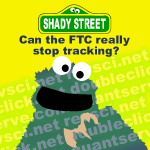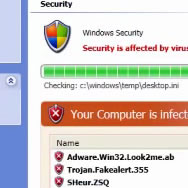Security | Social Media | Web
Can the FTC really stop tracking?
 The Federal Trade Commission is proposing ‘Do Not Track’ legislation similar to the ‘Do Not Call’ legislation that atte
The Federal Trade Commission is proposing ‘Do Not Track’ legislation similar to the ‘Do Not Call’ legislation that atte
Chain Spam Etiquette
 I recently got an email from my friend warning about pending doom coming from a computer virus. There’s a copy of it in the blockquote below.
I recently got an email from my friend warning about pending doom coming from a computer virus. There’s a copy of it in the blockquote below.
